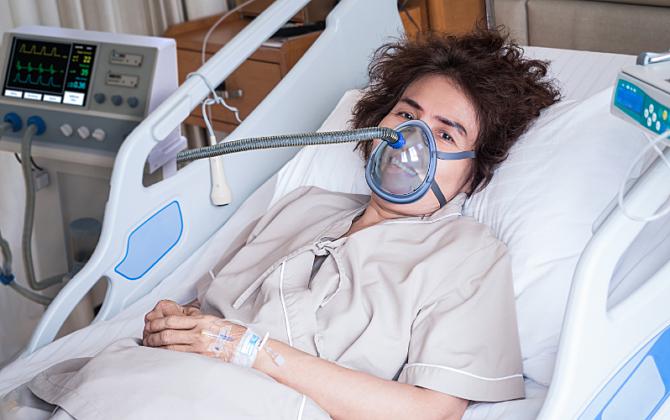Jump to
Approximately 33% of critically ill patients require mechanical ventilation to support respiration. During this time the major respiratory muscles, namely the diaphragm, abdominal and intercostal muscles, weaken. This vicious cycle leads to difficulty in separating patients from mechanical ventilation, increased mortality, and more readmissions to intensive care. Interventions that maintain respiratory muscle strength and reduce atrophy during mechanical ventilation are likely to reduce ventilation duration, complications and costs, and improve quality of life.
The abdominal muscles are the primary muscle group used during forced exhalation. We have shown that surface Functional Electrical Stimulation (FES) of the abdominal muscles, termed Abdominal FES, can improve respiratory function and assist weaning from mechanical ventilation in spinal cord injury. We hypothesise that Abdominal FES in critically ill patients will reduce diaphragm and abdominal muscle atrophy, with the long term goal of this project to demonstrate reduced mechanical ventilation duration.
We are currently conducting a pilot study at the Prince of Wales Hospital, Sydney, to investigate whether Abdominal FES is a feasible technique for reducing mechanical ventilation duration in critical illness. This work is being supported by our American project partners, Liberate Medical.




